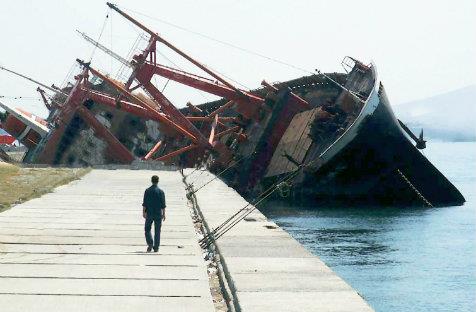A woman in the throes of an extramarital affair teeters on the brink of a mental breakdown. A young boy grapples with his feelings as he helps a Chinese international student edit her thesis. A lonely woman sits marooned in the snow as her teenaged neighbour leaves to seek help after crashing them both into a ditch.
Queensland author Chris Somerville’s collection of short stories, We Are Not the Same Anymore, explores a range of themes, including the disconnect that ensues after years of marriage, the aftermath of relationship breakdowns, and the complexity of dysfunctional ties. Despite each story boasting a very distinct plot and divergent characters, an overarching sense of loss, isolation and claustrophobia permeates each prose piece.
‘Earthquake’, the story of a disenchanted son searching for his ailing father’s lost dog, kicks off the collection. Fractured relationships between parents and children feature throughout the book – in ‘Hinterland’, for instance, where an embittered young man develops a troubling habit in the aftermath of his parents’ divorce, and ‘Travelling through the Air’, in which an anxious young man struggles to tell his mother he has lost his job.
Working within the succinct medium of short fiction – which unlike novels leave less space for exposition, conflict and resolution – Somerville is adroit at fostering an escalating sense of suspense, most apparent in ‘Room’.
‘There was a flash of something thin and metallic in her purse which her fingers rearranged. The purse snapped shut. I had forgotten to turn the volume down and as she left the closing of the bathroom door resonated in my headphones like a gunshot.’
The lugubrious ‘Sleeping with the Light On’ is a particular highlight. Readers are met with the claustrophobic scene of Lillian cloistered in the kitchen with her husband, James, as she prepares for an intimate dinner party with their neighbours. Somerville enlivens the narrative by innocuously revealing significant pieces of information, using the neighbouring couple as a plot device and forcing readers to reflect on the parallels between the unspoken ruin of Lillian and James’ relationship and the mayhem of the neighbouring couple’s marriage – brought to the fore by a recent house robbery they endured.
Set against the pervading imagery of water, ‘Aquarium’ juxtaposes a man’s heroic deed of saving a drowning man with the ineptness that greets him when he attends his child’s birthday party. The last story, ‘Drowning Man’, employs the same motifs in the most visceral story of the anthology.
‘Outside the world is mostly water. Benches and fence posts and picnic tables float past. I tell my students to find something that floats and never let go.’
Somerville utilises proverbial bonds and common parlance to traverse familiar situations, and delves into the deep-seated emotions and long-buried enmities that lie beneath the surface of the very flawed, extremely real characters that inhabit his stories. And therein lays the beauty of We Are Not the Same Anymore. Despite Somerville basing his stories around the most conventional of people and the archetypal situations they find themselves in, somehow they are left seeming anything but ordinary.
Rating: 4 stars out of 5
We Are Not the Same Anymore
By Chris Somerville
Paperback, 224pp, RRP $19.95
ISBN: 9780702249655
University of Queensland Press





